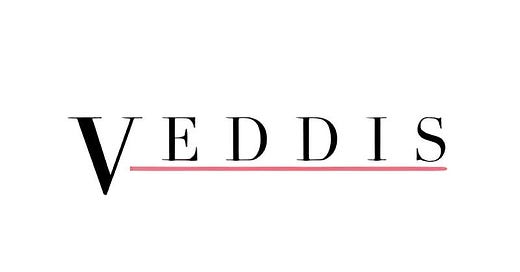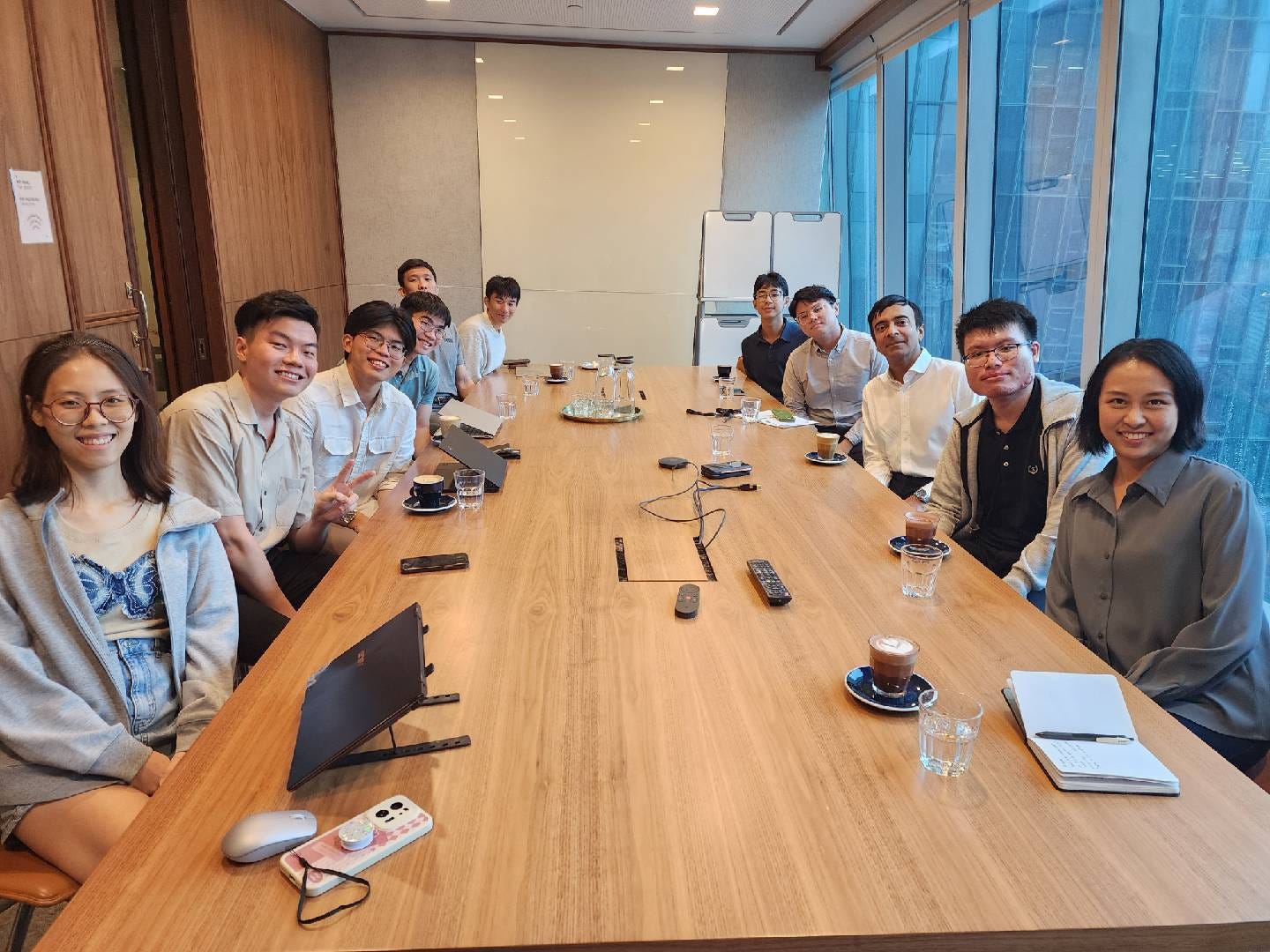Meet the Investor - Veddis - Vikrant Bhargava
A deeply impactful session with Vikrant Bhargava, Founder of Veddis, who shared both investment and life lessons.
*Written below is an article penned by Singapore Chapter Co-CEO, Jo Vial HO with reflections from Z Club members Brandon Lim and Zhi Heng Fong for the incredible Meet-the-Investors Session we had with Vikrant Bhargava this March!
An Afternoon with Vikrant Bhargava: Hustle, Curiosity, and Long-Term Thinking
We had the privilege of sitting down with Vikrant Bhargava, the founder of Veddis, a family office, and the mastermind behind PartyGaming plc, which soared to an IPO of USD 8.5 billion. In our conversation, Vikrant shared insights into his investing philosophy, daily routines and critical ingredients for sustained success.
Vikrant’s journey is nothing short of remarkable. From entrepreneurship to investments, he has carved a path that blends relentless hustle with strategic foresight. As the former co-founder of PartyGaming, which achieved a landmark IPO valued at USD 8.5 billion, he found himself at an incredibly fortuitous position after the IPO and decided to go into investing. Describing himself as more of an “operator”, Vikrant then wanted to move into the investment space as his mindset shifted to wealth preservation rather than creation.
Vikrant with Z Club members this March
When pressed on the secrets to his success, Vikrant didn’t mince words. “Hunger,” he said simply. His insatiable drive propelled him through grueling 18-hour days as he climbed the ranks—from cracking IIT to excelling at Bank of America, and eventually building his startup empire.
Acquisition of knowledge was something that he viewed as extremely important as well. This can come through any means possible: podcasts, video content or books. To be curious and hungry to feed that curiosity was something he ascribed to his success.
Vikrant also explained how adequate sleep sharpens focus, making it a pillar of high performance. It’s a lesson many overlook in the cult of busyness.
Overall, our members benefited and learnt much from this session. It was an absolute treat to be able to meet him and it allowed for our members to reap much from this session. Hear some of their thoughts below!
Personal Reflection from my MTI Session with Vikrant Bhargava
During our MTI session with Vikrant Bhargava, what resonated most deeply with me was his mindset on money. Vikrant prioritizes wealth preservation over aggressive risk-taking. He emphasized that downside risk protection is far more critical than chasing flashy returns, especially when the goal is to preserve and grow wealth over time. This was a refreshing reminder that, while ambition is important, long-term success often comes from protecting the base rather than constantly swinging for the fences.
As the session progressed, we explored how to assess quality businesses and management teams—an area that particularly intrigued me. Vikrant’s view was clear: strong companies are underpinned by resilient and competent leadership. He pointed out that businesses overly reliant on external funding are particularly vulnerable during economic downturns. When liquidity dries up, poor capital allocation and financial management can swiftly lead to a company’s demise. This made me more mindful of the importance of balance sheet strength and self-sufficiency when evaluating companies.
Vikrant also highlighted that effective management is holistic, extending beyond shareholder returns. A company’s leadership should be aligned with all stakeholders, including customers. Without a loyal customer base, even the strongest financial model can falter. I found his emphasis on fostering an open, feedback-driven culture particularly meaningful. Teams that feel safe to speak up and challenge decisions contribute to a company’s agility and long-term health—something I will consider closely in both investment decisions and when reflecting on my own leadership values.
We also discussed the critical role of corporate governance. Vikrant pointed out that the best board members are those who come prepared, ready to ask tough, insightful questions. Evaluating management’s historical capital allocation decisions, and whether senior leaders hold insider ownership, is key to understanding whether executives are truly aligned with long-term company goals. This has shifted how I view governance—it’s not just a checklist but a signal of whether a company is built on solid foundations. On a more personal level, Vikrant’s reflections on negotiation and communication struck a chord. He spoke about the power of being direct and knowing when to say "no"—a skill that has allowed him to be intentional with his time and energy. Equally, his approach to creating win-win outcomes reminded me that effective negotiation isn’t just about closing deals but also about building trust and goodwill. His belief in continuous learning also left a strong impression on me. It reinforced the idea that no matter how much we accomplish, there is always more to explore, learn, and master.
To conclude, I am truly grateful to Vikrant for sharing his time and experience with us. His humility, combined with deep insight, has provided me with valuable takeaways both professionally and personally. I look forward to applying these lessons and to engaging in future MTI sessions with him.
Zhi Heng Fong
What I learnt from speaking with Vikrant Bhargava
Vikrant’s sharing with us was nothing short of insightful. I was particularly surprised by how humble he is despite his outstanding success in various endeavours in life – from entrepreneurship and finance to philanthropy. Behind his success, I believe we see someone who has achieved what he said his parents expectations were – to be a good person.
I had many takeaways from the 1.5 hours with Vikrant.
Firstly, he shared about the importance of teams, from the people you work with to the management teams of companies. Vikrant believes that we should find people with complementary skillsets as no two member in the team should have the same skills. It is only through finding competent people that have complementary skills that we can delegate successfully in a high-trust environment. On management teams, he believes that management should be aligned to stakeholders, build a flat structure in the company and prioritize customer feedback.
Additionally, Vikrant mentions the importance of leverage in life. Especially for philanthropy, he would rather spend the money helping organizations and governments drive greater change. Donating a sum of money to help one person would have limited change, but donating for a cause that is able to greater raise more money will impact society on a larger scale.
My last takeaway is to be open-minded in life. Our careers could take a drastically different path from what we expect. Vikrant has changed locations multiple times over the course of his life, and he believes that we should never be too comfortable in life. Once we feel that we have settled, we should shake ourselves up and push ourselves even further.
Brandon Lim





